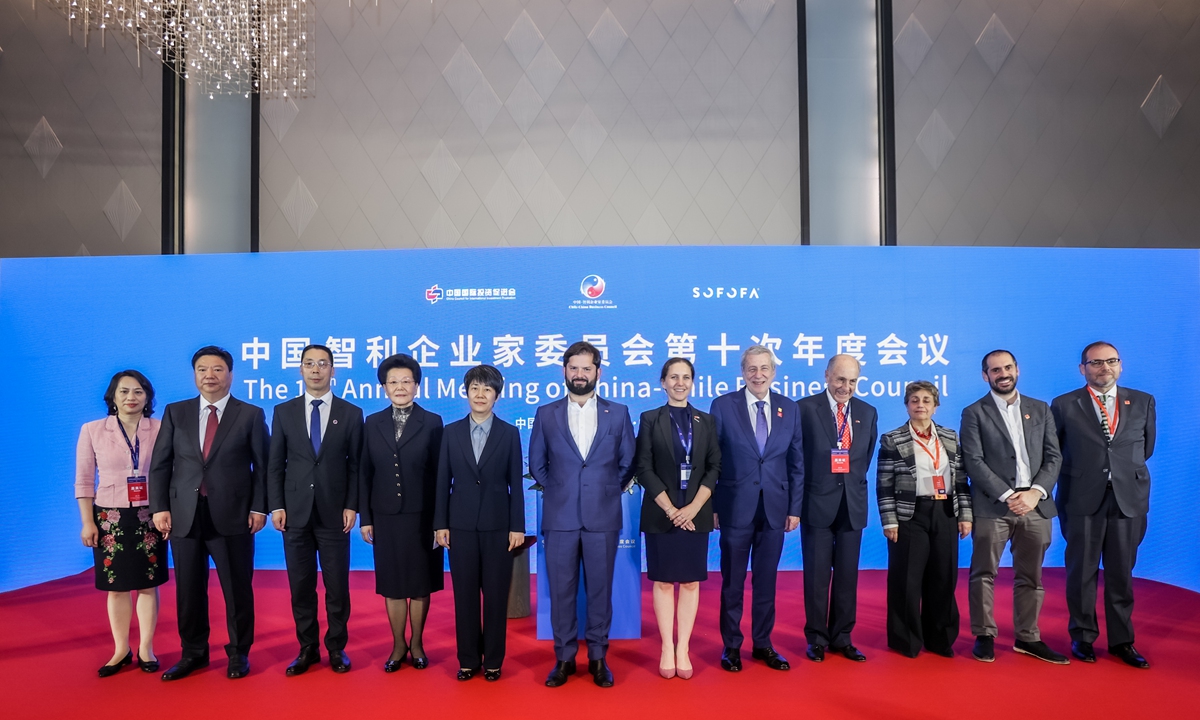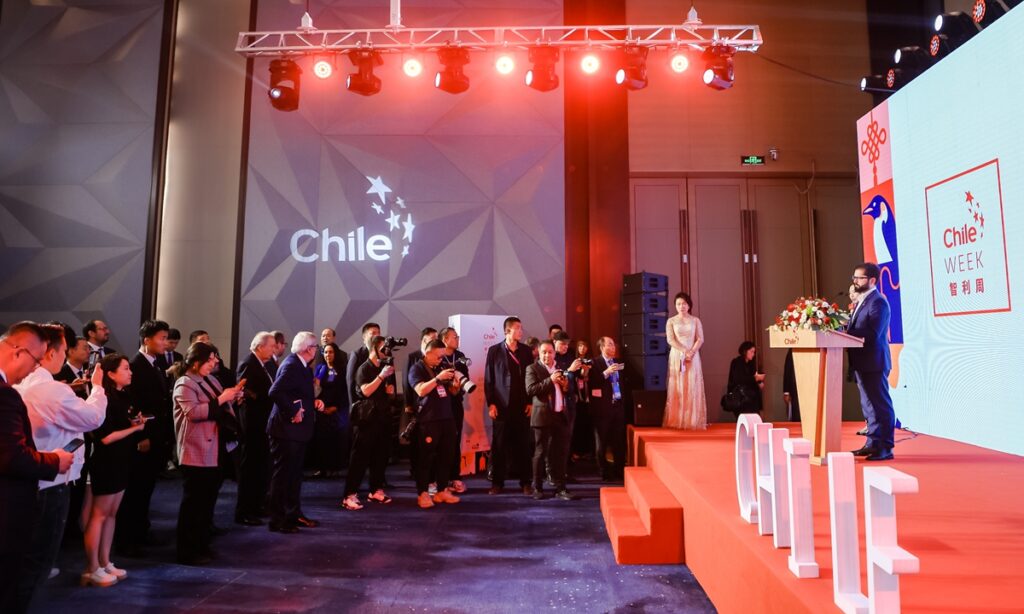Chile expects to further promote BRI, aspires to engage in more projects: President
Chile is actively advancing the China-proposed Belt and Road Initiative (BRI) and aspiring to participate in more projects advocated by China, including lithium mining and solar energy, Chilean President Gabriel Boric said at a Chilean economic and trade event during his visit to China on Monday.
Boric made these comments at a time when the BRI was celebrating its 10th anniversary, on the sidelines of the Belt and Road Forum for International Cooperation, making it a focal point of his visit to China. During his visit, new agreements are expected to ink, including new energy-related cooperation, as well as approvals for more Chilean products to come to China, as reported by the Global Times.
During the 10th Annual Meeting of the China-Chile Business Council, which was held in Beijing on Monday, Boric stated that Chile joined the BRI in 2018 and hopes to continue strengthening trade between the two countries within the cooperation framework, which is built on mutual trust.
Chile has just announced a new investment cooperation in lithium-related sector, involving about $233 million, which he described a sign of further strengthening cooperation between Chile and China.
This event marks both the 10th anniversary of the BRI and the fifth anniversary of the signing of the BRI memorandum of understanding between Chile and China.
The president expressed Chile’s desire to explore China’s development model and learn from China while participating in more projects advocated by China.
The 10th Annual Meeting of the China-Chile Business Council coincides with the opening of Chile Week and brings together hundreds of Chinese and Chilean business representatives. Many Chilean export companies have come to China specifically for this opportunity to further tap into the booming Chinese market, which has become their most important overseas market.
Rafael Bianchini, executive director of Frunut, a Chilean walnut company, told the Global Times at Monday’s event that the company has been doing business in the Chinese market for the past six years, exporting around 1,000 metric tons of walnuts to China every year.
China is the second most important overseas market for the company in terms of walnut exports, and the market significance is rising, Bianchini said.
Despite the pressure on domestic consumption, the company is optimistic about the walnut trade with China and sees that demand remains strong. “We hope to find more local distributors and increase our trade with the Chinese market,” Bianchini said.

Chilean President Gabriel Boric (center), along with other members of the Chilean delegation, and Chinese government and industry representatives, pose for a group photo at the 10th Annual Meeting of the China-Chile Business Council in Beijing on October 16, 2023. Photo: Courtesy of China Council for International Investment Promotion
Chilean wine, as a major trading product in the country’s exports to China, has been resilient and has continued to gain a foothold in the Chinese market.
Benjamin Huber, director of InVina, a Chilean wine producer, told the Global Times on Monday that the company has been exporting wine to China for more than 13 years, building up a business from scratch. China is now the largest international market.
China is a very important market for us both, because of its size and its recognition of quality products, which Chile has a lot of, he said.
In a good year, InVina exports about 2.4 million bottles of Chilean wine to China. Although this figure was shattered due to the pandemic, he expected the company can return to this level this year amid closer trade ties and resilient consumption.
Not only in the field of trade, but also in investment and infrastructure cooperation, the two countries are continuously strengthening their collaboration. More and more Chinese companies are coming to Chile under the BRI to assist in the country’s development and achieve win-win cooperation.
Ma Xiuhong, president of the China Council for International Investment Promotion, stated that Chinese companies invested over $160 million directly in Chile last year. As of the end of 2022, Chinese companies had signed engineering contracts worth $7.84 billion and they had a cumulative turnover of $3.13 billion.
These achievements provide a solid foundation for further deepening China-Chile economic and trade cooperation in the new era, promoting the comprehensive strategic partnership between China and Chile to a new level, Ma said.
Cooperation between China and Chile under the BRI framework continues to expand, particularly in the field of new energy, as both countries have put green development as a core principle for sustainable growth.
At Monday’s event, Guo Tingting, vice minister of Commerce, said that both China and Chile need to further expand the space for cooperation in green development, noting that there is enormous potential for collaboration in areas such as new-energy minerals and clean energy.
Currently, about 70 percent of Chile’s lithium carbonate exports are destined for China. Enterprises from both sides can actively explore the construction of a green industrial chain, such as the full production chain of new-energy minerals, power batteries and electric vehicles, Guo said.
Regarding green energy, Chinese companies have already become extensively involved in Chile’s solar and wind energy projects, contributing to sustainable development.
“We also need to further promote trade and investment liberalization and facilitation. China and Chile already have a Free Trade Agreement (FTA) as a solid platform. China is willing to work together with Chile to continue implementing the FTA and support enterprises from both countries in utilizing the preferential arrangements of the agreement to elevate economic and trade cooperation to a higher level,” Guo said.
China is willing to collaborate with Chile to consolidate a new consensus in building the BRI, facilitate effective alignment of the two countries’ development strategies, and merge development agendas, Guo said.
(Global Times)




